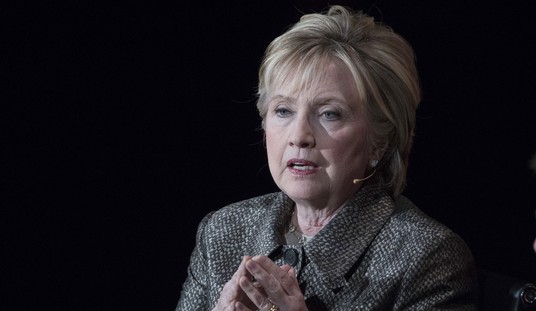Spengler (aka David Goldman) is one of my close friends and a long-time guru. William Russell Mead is just a guru, but I’m an avid fan. So when I find myself disagreeing with both of them, I start by telling myself that I’m probably wrong.
They tell us that the Democrats and the neoconservatives have largely and wrongly agreed on the tumultuous events in the Middle East, starting with the invasion of Iraq, continuing through the fall of Hosni Mubarak in Egypt and into the “Arab Spring” across North Africa and deep into the Persian Gulf. Spengler quotes the enthusiasts, from the Obama administration to leading Republican pundits, hailing the onset of Arab Revolution. Here’s Spengler:
The Obama Administration saw its actions as proof that soft power in pursuit of humanitarian goals offered a new paradigm for foreign-policy success. And the Republican establishment saw a vindication of the Bush freedom agenda.
And here’s Mead:
both are based on the flawed and distinctly American expectation of a happy ending. A little prudence would have done the neocons a world of good in Iraq, and a bit more of this underrated virtue would have helped both parties during the Libya fiasco and larger Arab Spring.
We can all agree that neither of them looks very smart today, which is the way of the world. Most of the time we blunder, in keeping with my conviction that the Almighty created man for entertainment value. And boy, have we blundered. We can agree with Mead and Spengler that hurling ourselves into the Syrian “civil war” might very well make things even worse. But we shouldn’t agree that, once we decided to embrace the cause of revolution in the Middle East, this unhappy outcome was foreordained.
It wasn’t. There were plenty of decision forks along the highway, and for the most part we adopted the witty advice (was it Yogi Berra’s?), “when you come to a fork in the road, take it.”
I was not part of that consensus (when I see near-unanimity, I run). I argued that we should stand by Mubarak, and if he fell, we should go all the way down with him. I thought it was a mistake to make Iraq the centerpiece of our war on terror, since Iran was the driving force of international terrorism. And I wrote monotonously that Iraq would never have decent security so long as the ayatollahs ruled in Tehran. So I’m not apologizing for myself when I say that I think Mead and Spengler have misdiagnosed the problem. They seem to think that it was wrong to support democratic revolution in the Middle East, because it was never likely to succeed. I think the problem is that we sometimes gave emotional support to the revolutionaries, but did not fight–fight politically, for the most part, only very rarely militarily–alongside them. That’s why there were so many banners saying “America, where are you?”
I also think that Spengler’s description of Obama’s policy, “soft power in pursuit of humanitarian goals,” is off the mark. The doctrine of protecting civilians from their own tyrants was invoked in Libya, and was used to justify the use of military power, not soft power. The other cases–from the very active and aggressive support of the Muslim Brotherhood in Egypt, to the insistence that we can make a deal with the Iranian regime–are not examples of supporting humanitarian goals, but rather supporting radical Islamic movements and regimes.
Obama has talked a lot of talk, but took only a few very short walks, when he walked at all. Worse still, at crucial forks in the road, he didn’t take it. For the most part, he dithered. When the Iranian people rose up against the mullahcracy in 2003 and again in 2009, we either opted out (2003, Colin Powell’s “we don’t want to be part of this family squabble”) or reassured the tyrants (Obama sent reassuring messages to Khamenei in 2009).
I think revolution in Iran was possible, and that vigorous support from us would have greatly increased the odds for success (indeed, I think we could and should do it now). If that had happened, the whole world would have changed dramatically. Terrorists, from al Qaida to Hezbollah–Sunnis and Shi’ites–would have been gravely, perhaps fatally, weakened. The appeal of radical Islam would have diminished, and therefore the Muslim Brotherhood would have been less likely to topple Mubarak.
I also think that the anti-radical forces in Egypt, Tunisia, Libya and elsewhere could have been more effective with American political, economic and technological support. Condoleezza Rice gave a couple of excellent speeches along these lines, but action was pathetic. Hillary also gave a few speeches, often pretending that we really were supporting pro-democracy groups (but she couldn’t talk about it, you know). There was no there there.
So nothing was set in stone. We could have acted, but we didn’t, and when we did, our actions were either misguided or inadequate. Syria is a fine case in point. It may well be that, had we acted promptly to support the defectors from Assad’s army–the breakaway “Free Syrian Army”–along with the Syrian and Iraqi Kurds, the Baathist regime would have fallen, and we would have been in a strong position in Damascus. Instead, Obama dithered, permitting the jihadis to organize themselves, infiltrate the FSA, and strengthen the iron fists of Iran and Russia.
Could we not have done better? Maybe not, but we didn’t try, not because of misguided romanticism about Arabs, and not only because of a refusal to see Islamic radicalism as the terrible force it is. It’s much worse than that, in fact. In Syria, as elsewhere, a large war is being waged, and the United States is the ultimate target. It’s not just the jihadis, Russians and ayatollahs. It includes the Chinese, the Venezuelans, the Qataris, a large chunk of the Saudis, along with Bolivians, Ecuadorians and Nicaraguans. Most of our pundits and policy makers never acknowledge this global conflict, and the Obama administration is slashing our military and paramilitary capabilities instead of designing and conducting a winning strategy.
There is no escape from this war. Our enemies believe they are winning, and will not back off. As Mead rightly insists, we should try to learn from history, and we’d do well to start by acknowledging that there are real enemies out there, that we have to protect ourselves, and that support for democratic revolution is one very effective weapon against them.
Faster, please.









Join the conversation as a VIP Member